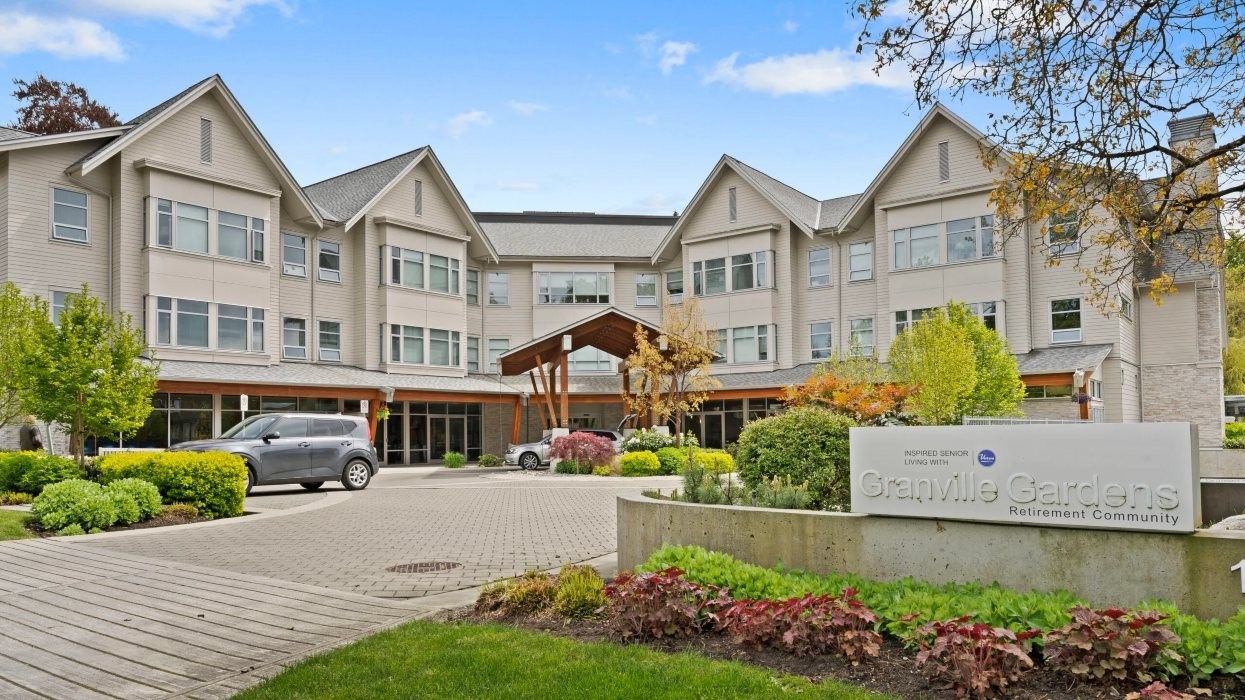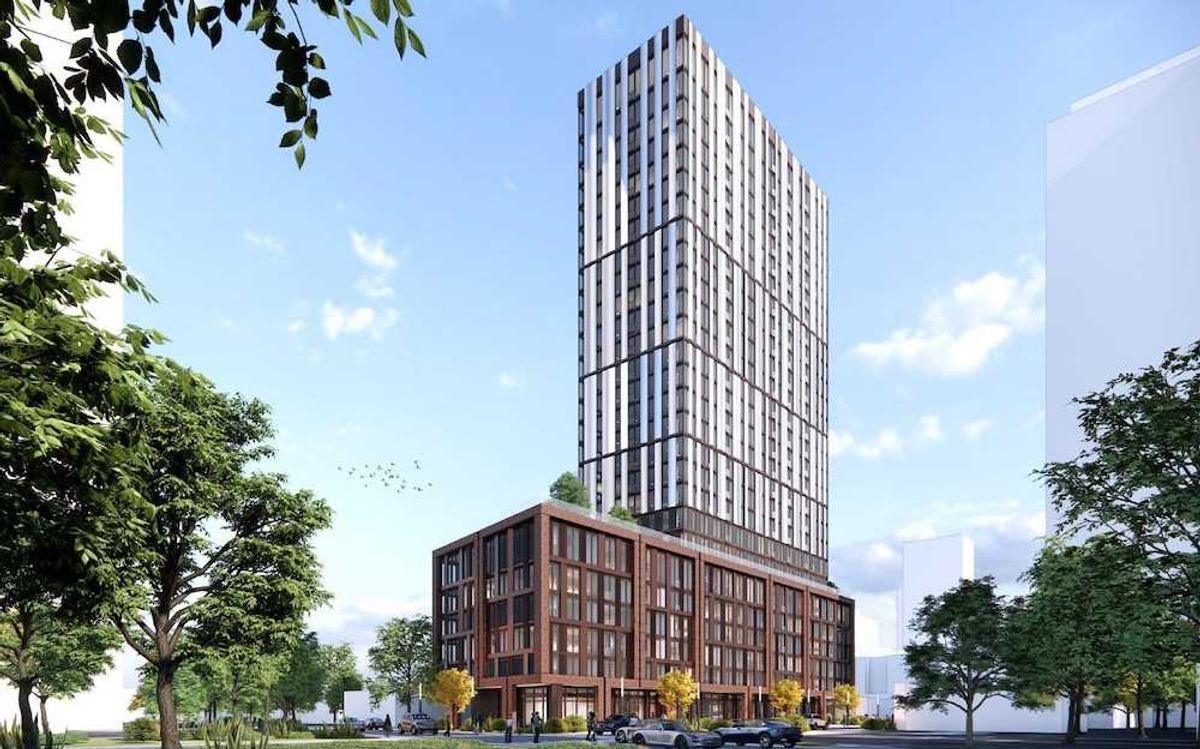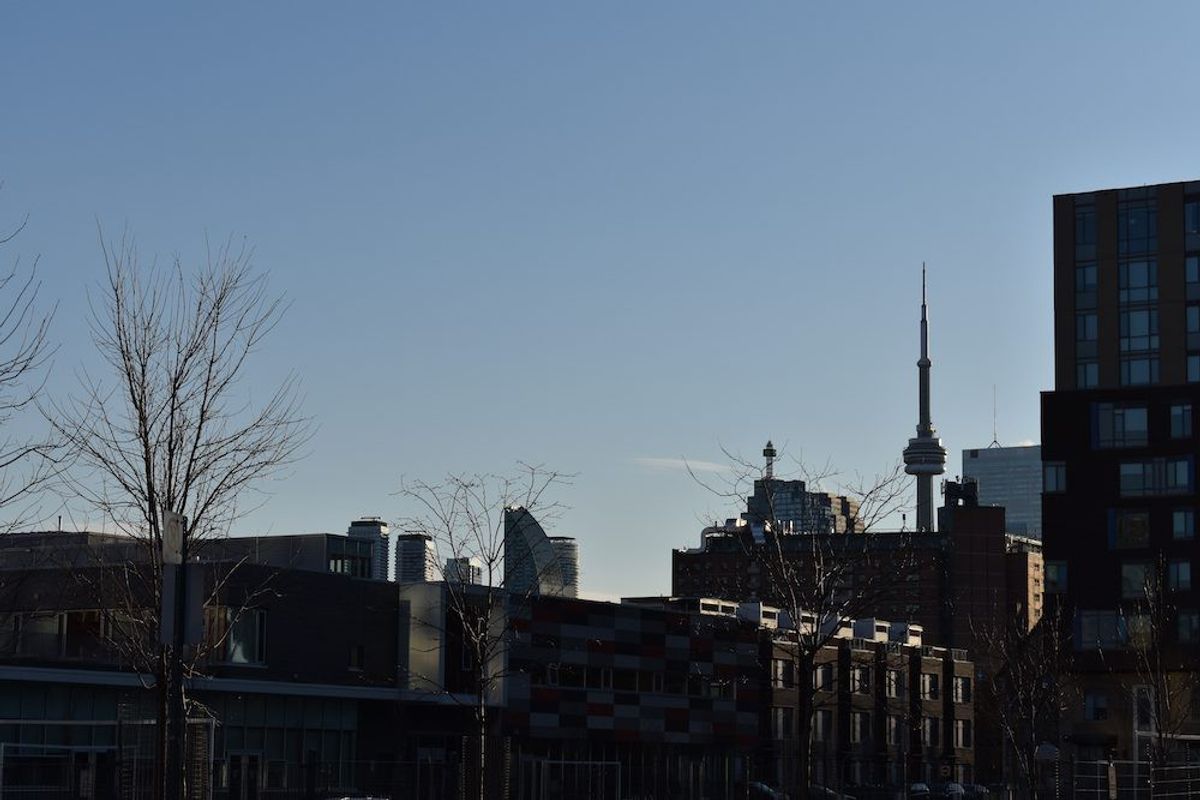[Editor's Note: The Seniors Housing Strategy and Seniors Housing Rezoning Policy outlined in this article were approved by Council on Tuesday, July 23, with an amendment that has been noted below.]
Next week, Vancouver City Council is set to approve its official — and first-ever — Seniors Housing Strategy, which the City says "identifies the housing needs and challenges of older adults, and strategies and actions to address these needs."
According to the City, over 194,000 people — 30% of the population — in Vancouver are over the age of 55 and this number is expected to increase "significantly" over the next 20 years.
"Older adults are a fast-growing age demographic in Vancouver, with more older persons in the city than ever before," said City staff in a report to Council. "Seniors are also getting older as a cohort, with higher proportions of people aged 75 and older in the coming future. "With the fast growing and aging population, it is urgent that the city do its part and work in partnership to meet the needs of this diverse population."
The Housing Needs Of Seniors
One of the big findings the City considered during the development of the Seniors Housing Strategy is that older adults are facing affordability challenges just like everyone else.
"According to 2021 Census data, there are over 14,000 senior-led households aged 55+ who are paying more than 30% of their household income on rent in the private market," the City points out. "Over one-third of these households are in crisis (approximately 5,100 households) and spending over 50% of their household income on rent."
Furthermore, 43% of the people on BC Housing's social housing waitlist are 55 years of age or older. During the City's last homelessness count, 21% of people counted were also identified as being 55 years or older.
A second key finding was that a majority of older adults are homeowners who want to stay in their homes and neighbourhoods for as long as possible.
"The majority of older adults 55+ are homeowners (70%), with over two-thirds of these residents no longer having a mortgage," said City staff. "Overall, we heard a high level of satisfaction with their current housing situation. Many older adults plan to remain in their homes and communities for as long as possible, but may need more housing options and supports to do so."
The third major finding is that many older adults will need health supports and other supports as they age.
"Many older adults will require a different type of housing or health supports as they age," said City staff. "This could include temporary supports after a fall such as at-home bathing or cleaning, health services, or ongoing social supports to improve overall health and well-being."
According to Vancouver Coastal Health, Vancouver will have a shortgage of just over 300 subsidized long-term care beds and 90 subsidized assisted living units by 2025 — 1,500 long-term care beds and 350 assisted living units within the next decade — if no action is taken.
Vancouver's Seniors Housing Strategy
The new Seniors Housing Strategy seeks to address these needs.
"The Strategy seeks to prioritize the housing that is needed most, including social, supportive and co-op housing for older adults, along with subsidized assisted living and long-term care, while recognizing some need is filled by private-pay long-term care, assisted living and independent living," staff says.
The Strategy is guided by five key directions and amounts to over 20 actions. Those directions and actions include:
Increase the supply and renewal of affordable and appropriate housing for older adults.
- Implement a Resident Relocation Policy for Community Care and Assisted Living Residences to ensure residents of redeveloping long-term care and assisted living buildings receive added protections.
- Develop policies and practices to support new and redeveloped long-term care, assisted living, and seniors social, co-op and supportive housing in partnership with Vancouver Coastal Health and BC Housing.
- Streamline the development of seniors social housing within neighbourhoods throughout the city through pre-zoning.
Improve home and building supports for older adults.
- Advocate to the Province for the expansion of funding to support the delivery of mobile support services to older adults living in social housing to promote healthy aging in place.
- Support the BC Seniors Advocate in calling on the Ministry of Health to eliminate the daily rate to receive home supports so all older adults can afford at home assistance, reducing pressure on the long-term care system and supporting healthy aging in place.
- Continuing to ensure housing capital granting processes encourage seniors housing providers to come forward with applications for culturally appropriate housing operations in buildings serving older adults.
Increase the supply of deeply affordable housing, rental subsidies, and other services for older adults experiencing or at risk of homelessness.
- Continue to advance the replacement of Single Room Occupancy (SRO) buildings through the SRO Intergovernmental Investment Strategy, with consideration given to ensuring replacement housing meets the needs of existing tenants who are seniors.
- Explore the suitability of seniors-only shelters or shelter spaces as an interim step to permanent housing with BC Housing and Vancouver Coastal Health.
- Advocate for continued improvement of the Shelter Aid for Elderly Renters (SAFER) program to ensure affordability in existing rental housing, including a one-time increase in the rent ceilings to reflect CMHC current average one-bedroom market rents of $1,786, a formula for regular annual increases to keep up with inflation and allowable rent increases under the RTA, and an increase in income limits to $45,000 to capture more older adults in need.
Improve access to information to connect older adults to housing and services.
- Investigate opportunities and partnerships with the Tenant Resources and Advisory Centre (TRAC), senior serving organizations, and the Provincial government to improve renter knowledge and offer better supports for older adults who rent.
- Build partnerships with the BC Non-profit Housing Association and Landlord BC to educate and encourage landlords and building managers to better support aging residents, and to reduce stigma and discrimination for older adults accessing rental and other housing.
- Advocate to the Province to increase funding to seniors’ centres, neighbourhood houses, and other organizations that provide housing navigation and referral services, and services that support older adults to age in the right place, such as light housekeeping.
Continue advancing other work to make Vancouver more equitable for older adults.
- Continue advancing broader actions in response to the aging population through the creation of a new, comprehensive Older Persons Strategic Action Plan. (Pending further Council direction.)
- Support non-profit housing organizations to deliver alternative housing types and explore new models, including home share.
- Investigate opportunities to foster and support Naturally Occurring Retirement Communities (NORCs) when undertaking future area planning processes.
The Seniors Housing Rezoning Policy
One of the biggest actions from the list is a new Seniors Housing Rezoning Policy, which City staff say is intended "to create more housing options, with and without care supports for older adults to age in their community."
The policy splits seniors housing into three types — community care, supported or assisted, and social — and outlines different densities for them, depending on whether the site is on an arterial street or local street.
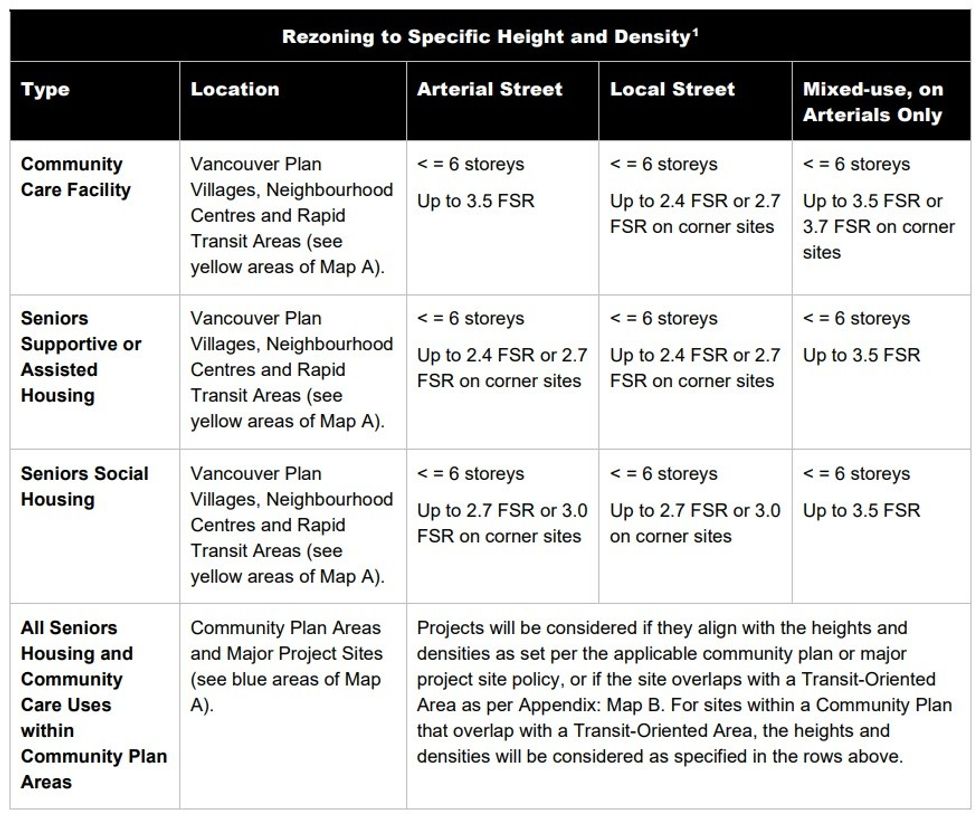
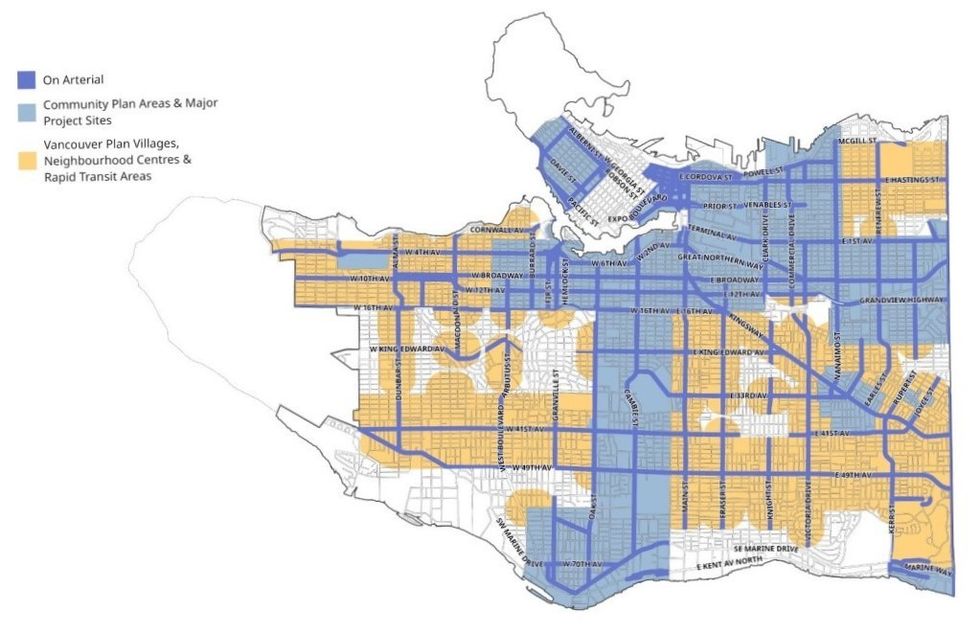
According to a draft of the policy, the maximum height regardless of location and street is six storeys or less, although the City also notes that "additional height and density will be considered for seniors housing types that are 100% owned by a non-profit corporation, or by or on behalf of the City of Vancouver, the Province of British Columbia, or Canada."
[Editor's Note: On Tuesday, July 23, the City amended the Seniors Housing Rezoning Policy to make privately-operated seniors housing also eligible for additional height and density. The policy was then approved.]
Other features that will be factored into the consideration of additional height include heritage considerations, urban design performance, and whether the project includes a commercial component. Whether or not the site falls into a transit-oriented development area (TOA) is also a big factor, as the site would also be governed by the new TOA Rezoning Policy that was approved last month.
For developers, all rezoning applications must meet the Tenant Relocation and Protection Policy or the new Resident Relocation Policy for Community Care and Assisted Living Residences, depending on applicability, as well as the City's community amenity contributions (CACs) policy.
According to City staff, if approved, the new Seniors Housing Rezoning Policy will not apply to projects that are in-stream before July 23, 2024. On that day, Council will make a decision to approve the overall strategy, the rezoning policy, as well as several other related policies stemming from the strategy.
